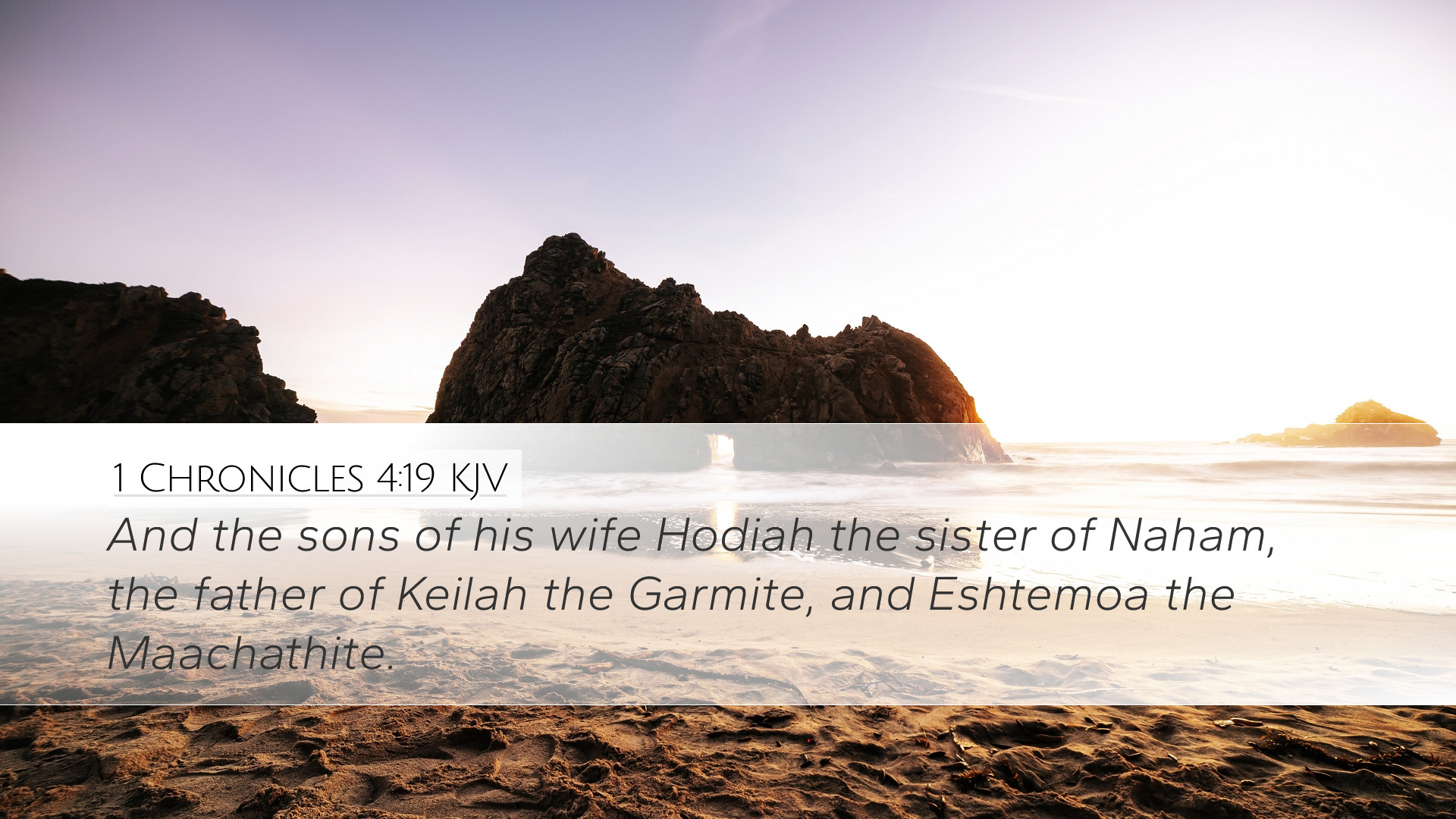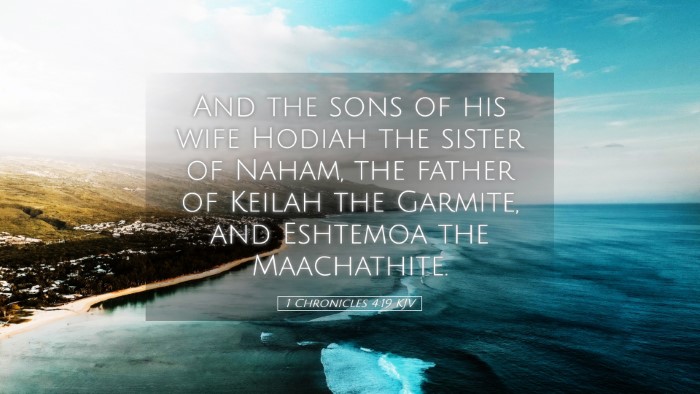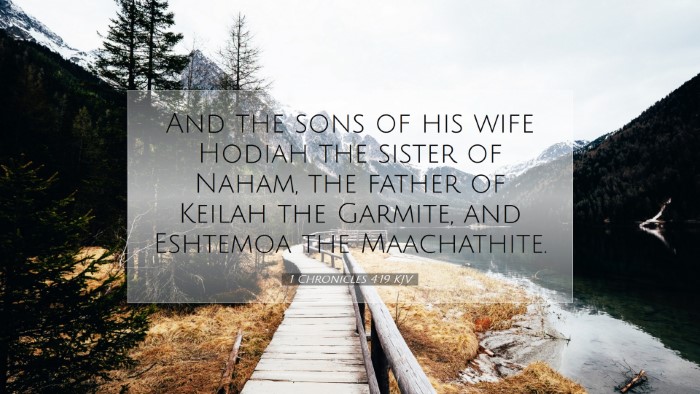Commentary on 1 Chronicles 4:19
Verse Reference: 1 Chronicles 4:19
"And the sons of the wife of Hodiah, the sister of Naham, were the fathers of Keilah the Garmite and Eshtemoa the Maachathite."
Contextual Background
The book of 1 Chronicles serves as a historical record, focusing on the lineage and the historical significance of the tribes of Israel, particularly emphasizing the Davidic line. Within these genealogical accounts, details about various families and tribes are provided, aiming to exhibit the fulfillment of God's promises to His people.
Chapter 4 is remarkable for its extensive focus on the tribe of Judah, detailing various descendants and significant figures. The mention of Hodiah signifies important partnerships and lineage connections, offering insights into the complexities of Israel's familial structures.
Insights from Matthew Henry's Commentary
Henry notes that the genealogical lists found in Chronicles serve to remind believers of God's dealings through history. In regard to 1 Chronicles 4:19, he emphasizes the importance of Hodiah's family as an extension of Judah's lineage. This highlights God's sovereignty in sustaining and raising significant families for His purposes.
Moreover, Henry points out that the mention of specific names such as Keilah the Garmite and Eshtemoa the Maachathite illustrates the fulfillment of God's promises to provide a land and a people. It also reveals how God uses ordinary individuals in extraordinary ways to fulfill His divine purpose.
Insights from Albert Barnes' Notes
Barnes provides a detailed look at the individual names mentioned in this verse. He elaborates that Keilah, mentioned here, is a city of Judah, representing both a geographical and spiritual heritage for the Israelites. He suggests that understanding these names is crucial for comprehending the territorial distribution and significance of families in Israel's history.
Additionally, Barnes indicates that the families mentioned are connected to a broader narrative of establishment within the promised land, reminding believers of God's faithfulness in granting inheritance to His people. The practices and inheritances of these families reflect the order and plan that God instituted among the tribes of Israel.
Insights from Adam Clarke's Commentary
Clarke emphasizes the significance of the family relations stated in this verse. He suggests that Hodiah’s relationship to Naham and the subsequent mention of their children underscores the interconnectedness of tribes and families. This serves as a reminder of the social fabric that constituted the nation of Israel.
Furthermore, Clarke points out the diversity within the lineage, highlighting the various roles that families played within Israel's history—from warriors to builders of cities. This versatility demonstrates that God uses varied backgrounds and abilities to fulfill His divine plan. Clarke encourages readers to appreciate how God interweaves the lives of His people for a greater narrative.
Theological Implications
- God's Sovereignty: The verse illustrates God's control over history and the development of Israel's lineage. Each name, linked within genealogies, points to a divine orchestration of events.
- Community and Relationships: The emphasis on familial ties, as seen in Hodiah and Naham, reflects the broader theme of community in the Old Testament, showcasing how faith is often lived out in community relationships.
- Fulfillment of Promise: This verse and its lineage not only direct attention toward the past but also project hope towards God's continuing promise of restoration and lineage through Christ.
Practical Applications
- Emphasizing Heritage: Pastors and educators can use this verse to teach about the importance of understanding one's spiritual heritage and ground it in biblical history.
- Connection to Community: This verse calls believers to appreciate their communal identity in Christ, drawing attention to how relationships shape faith and understanding.
- Focus on Divine Purpose: The genealogies remind believers that each life matters and that God has a purpose for every individual, granting significance even to those who may appear unimportant.
Conclusion
In conclusion, 1 Chronicles 4:19 encapsulates not merely a list of names, but a meaningful contribution to the larger narrative of God’s covenant with His people. The insights drawn from respected public domain commentaries elucidate understanding about God's promises, familial heritage, and the intrinsic value of each person in God's plan. This reflection invites deeper engagement with Scripture, encouraging scholars and pastors to recognize the intricate tapestry of God’s redemptive history.


